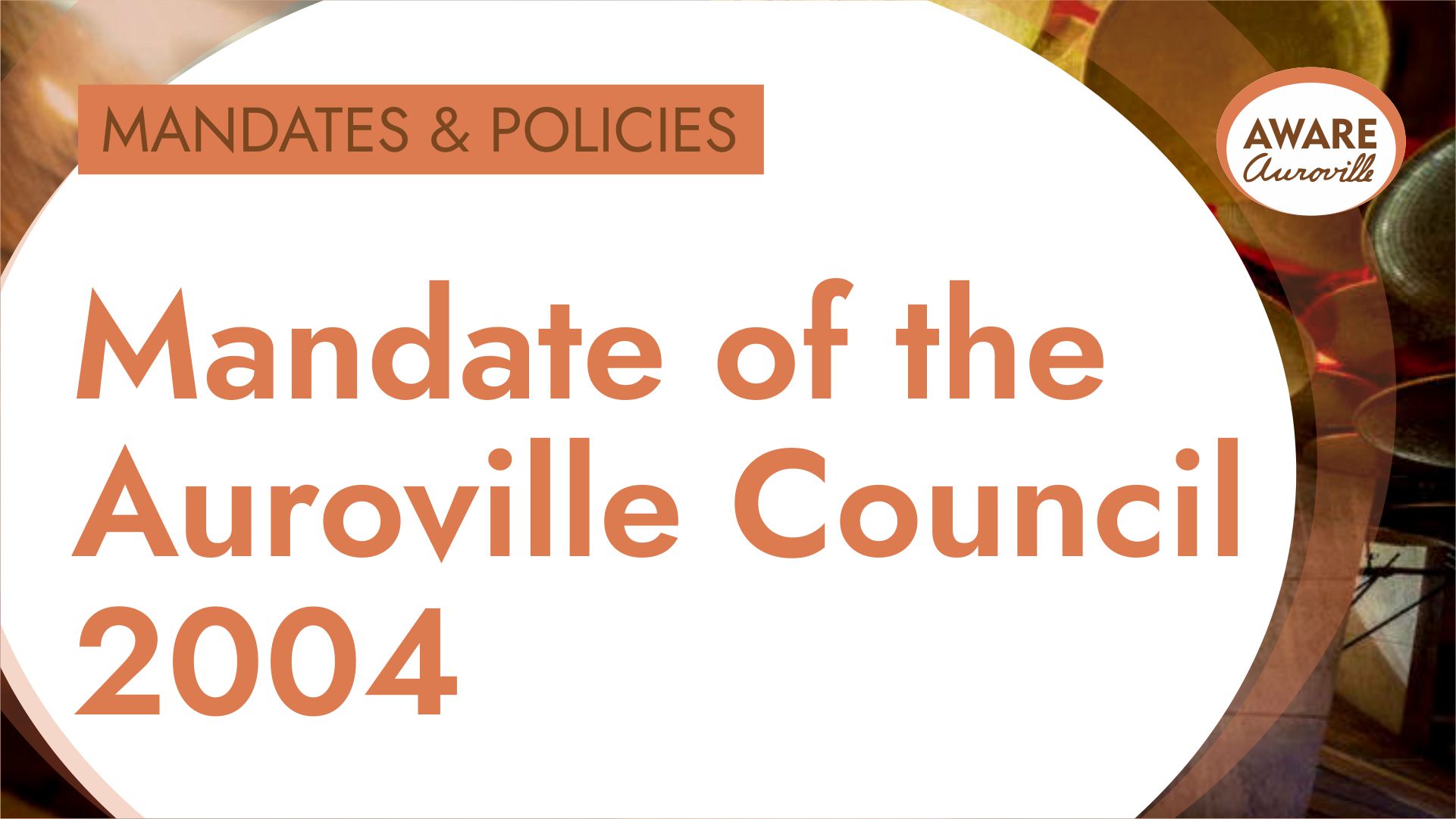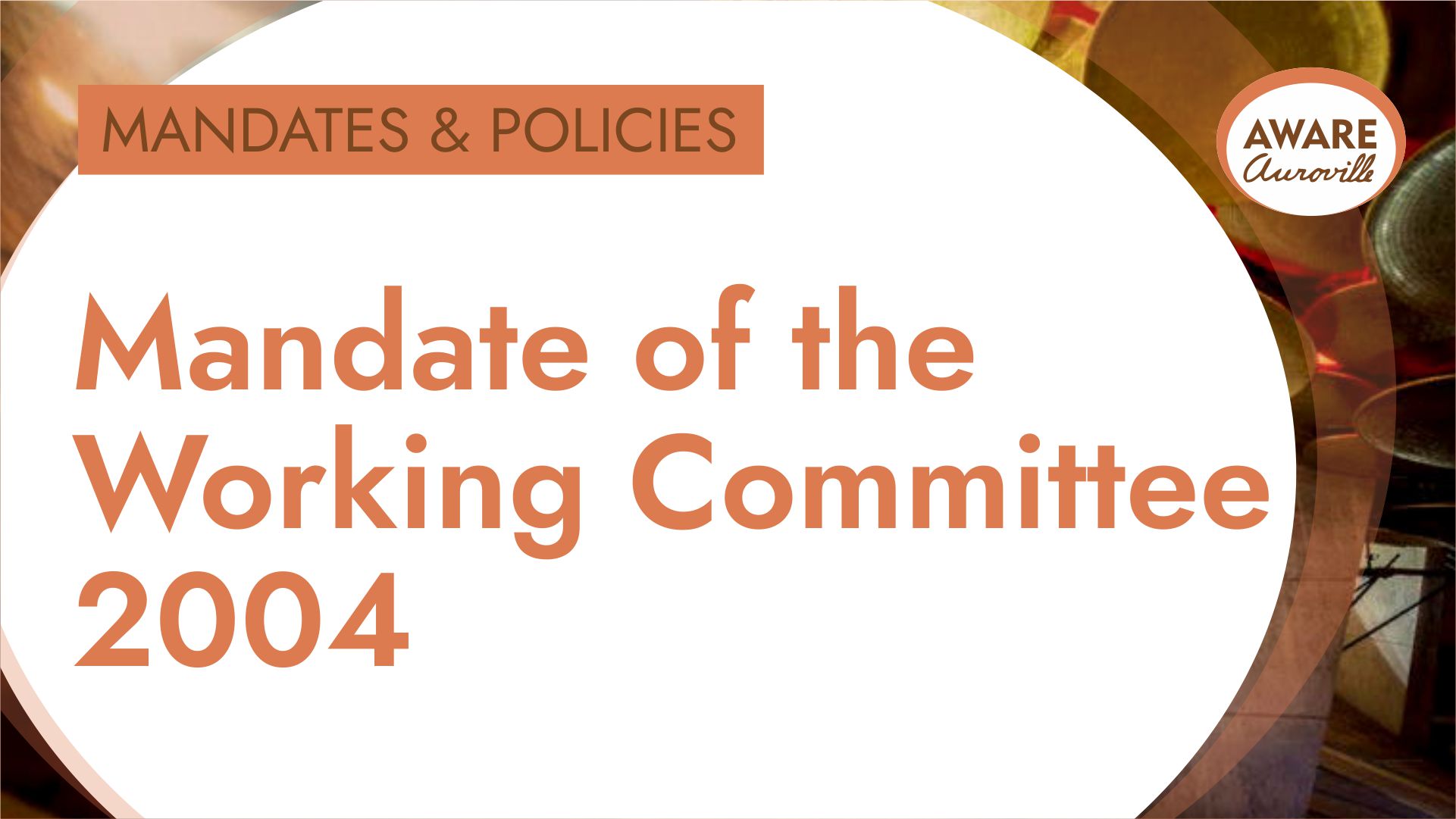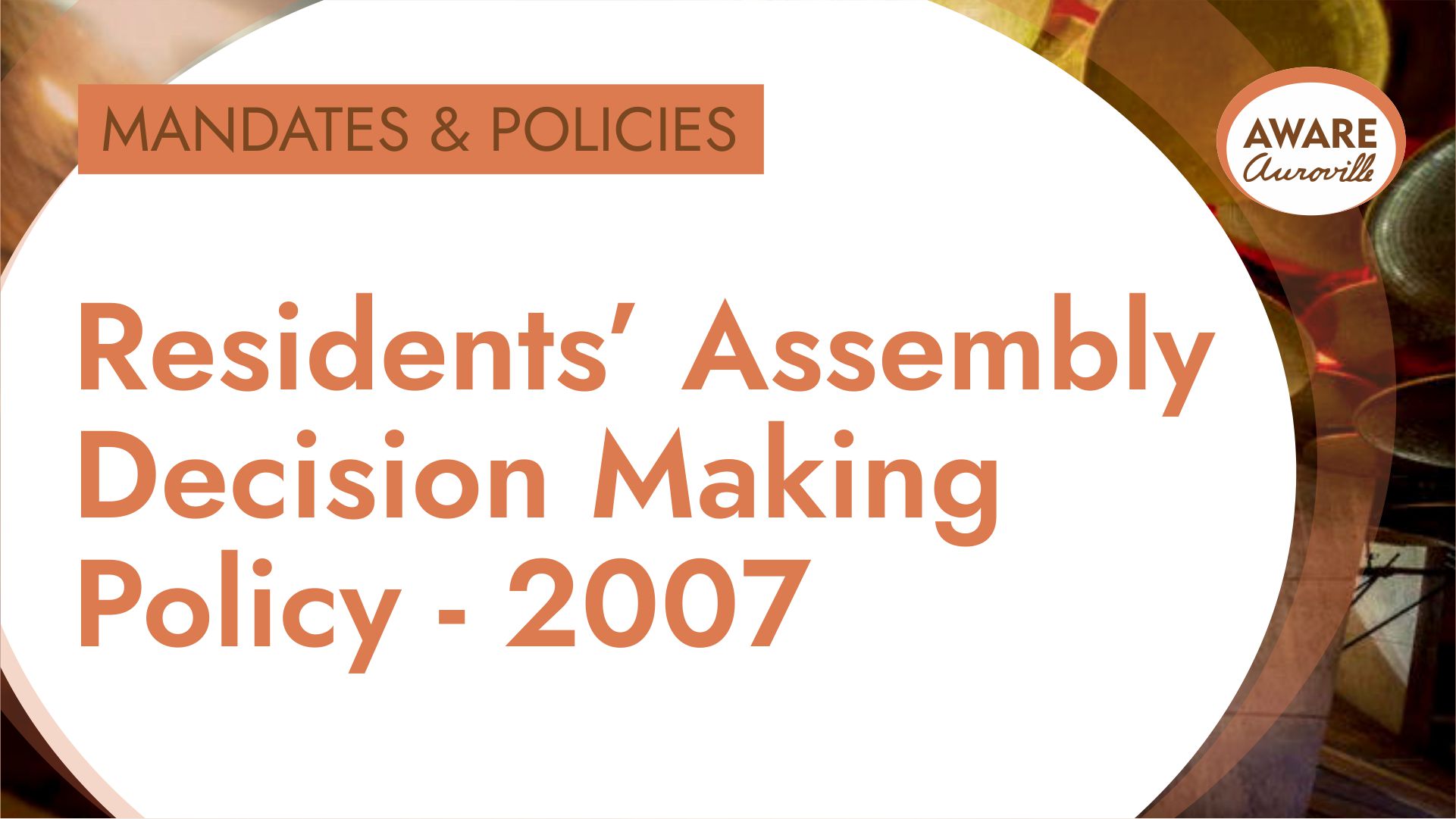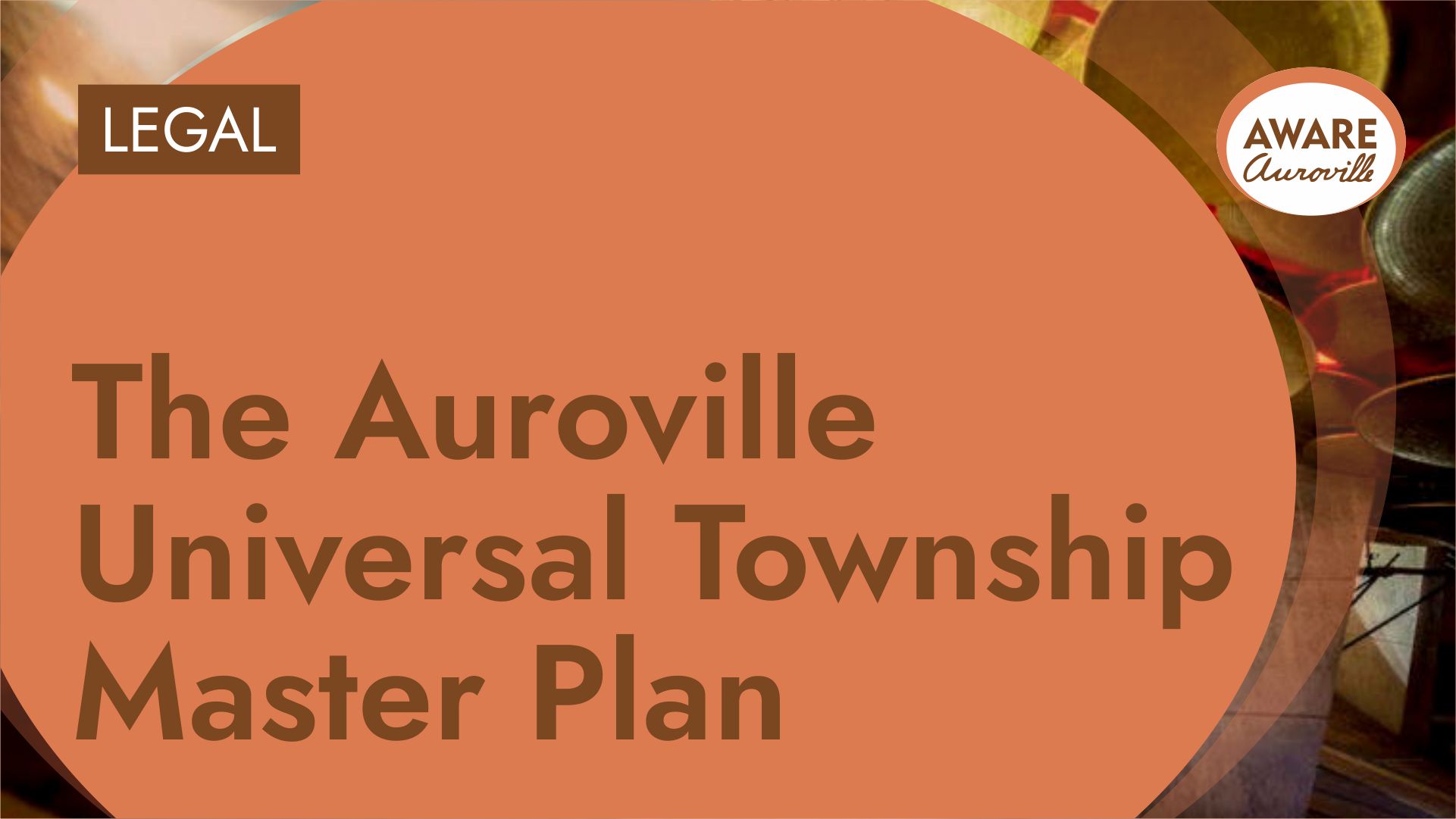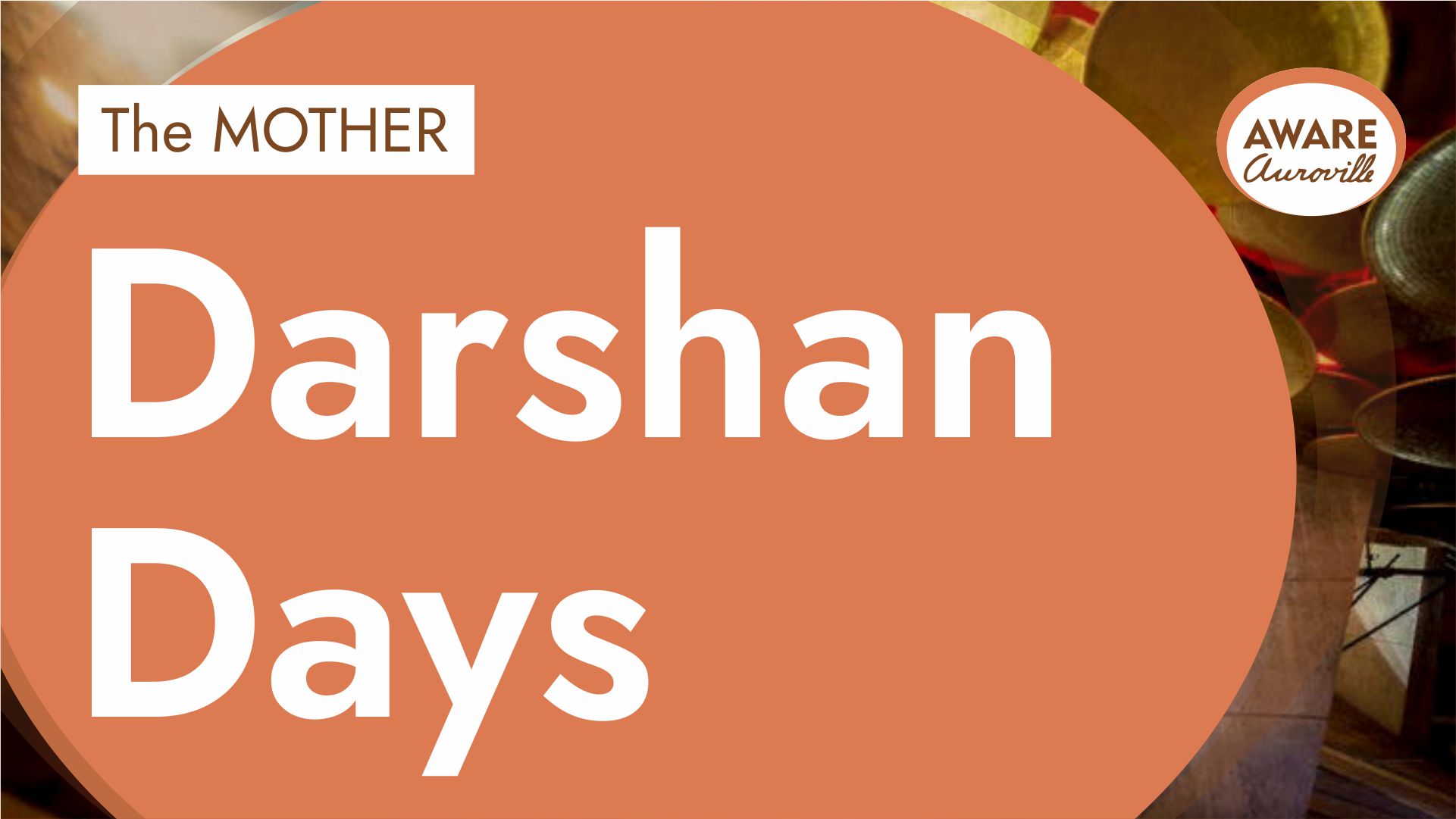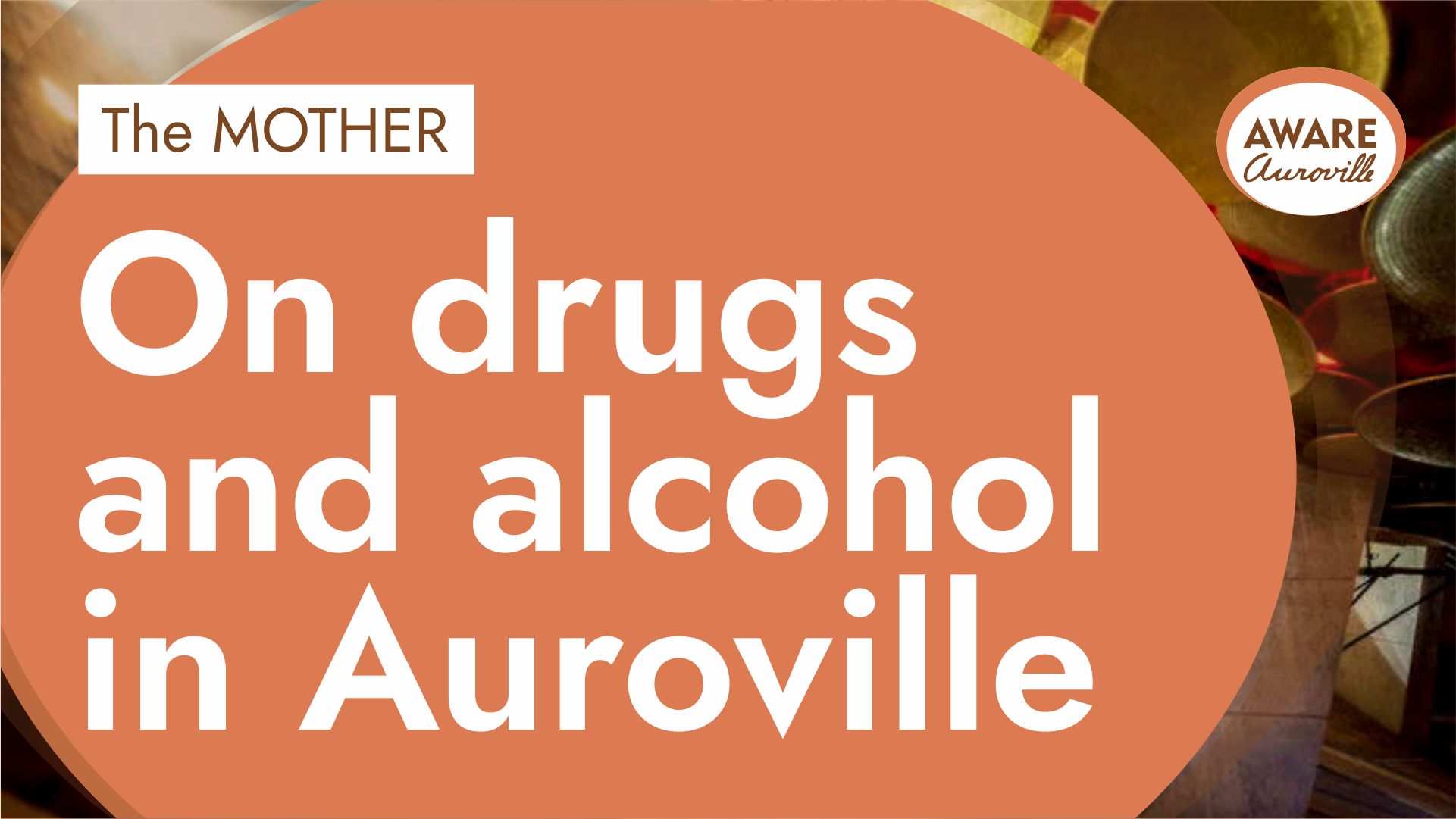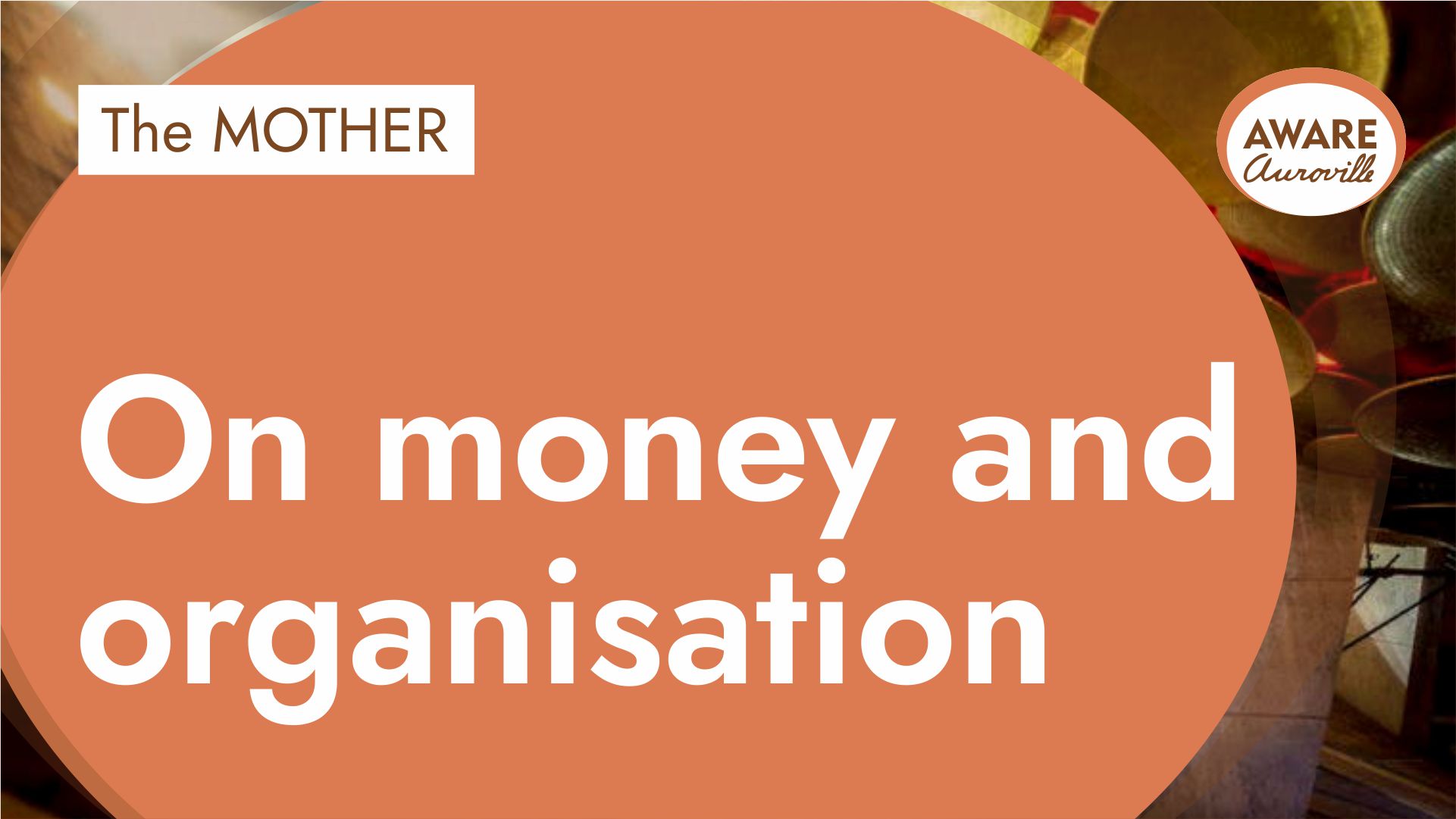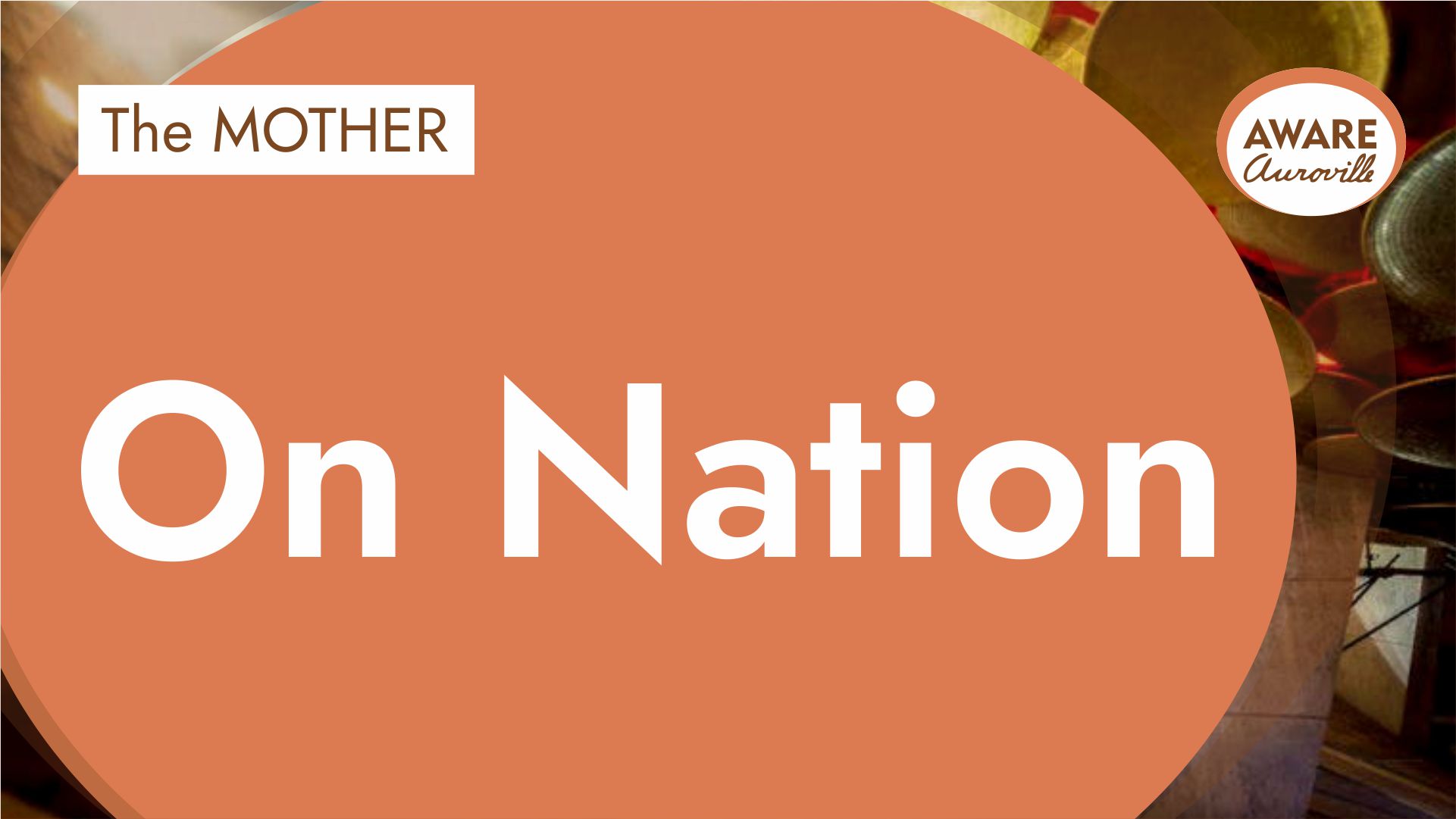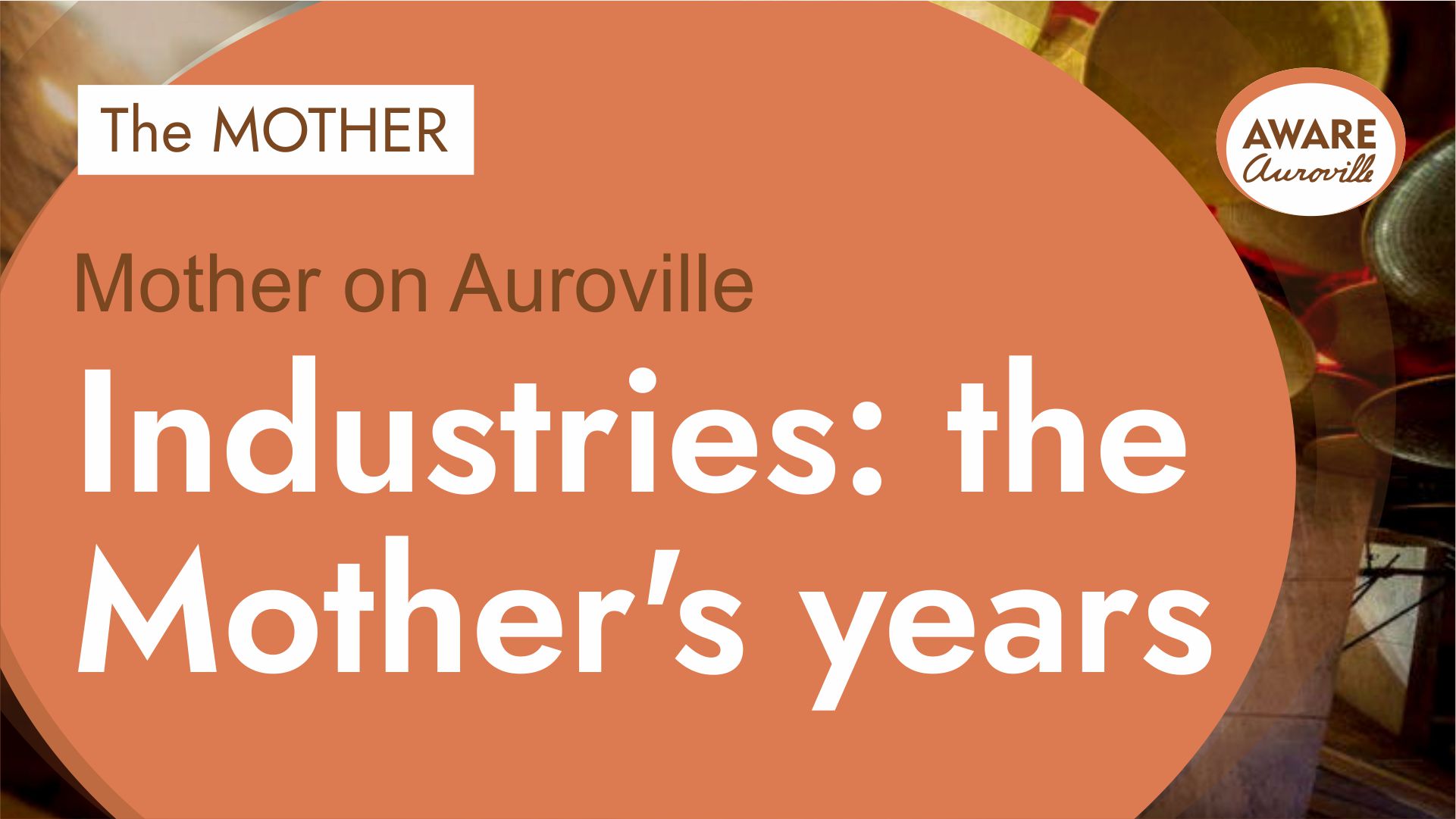The mandate of the Auroville Council is to assist the members of the Residents Assembly in organizing their activities
Continue readingMandate of the Working Committee 2004
The mandate of the Working Committee is to assist the Residents’ Assembly in discharging its functions under the Auroville Foundation Act
Continue reading2007 Residents’ Assembly Decision Making Policy
Decision making by the Residents’ Assembly
Universal suffrage
Decision making in the Residents’ Assembly of Auroville is based on the principle of universal suffrage. This means that each person has the right and privilege to participate in decision making, but that there is no compulsion to exercise this right.
Whether or not a person participates in decision making is a private matter. People should be respected for their participation as well as for their decision not to participate.
There may be many reasons why a person does not want to participate: for example the topic does not interest him or her; or one has pressing business elsewhere; or one is simply satisfied to leave the decision to others.
The principle of universal suffrage implies that each Aurovilian who wants to bring out a vote should be allowed to do so in the way which is most convenient to him or her. Some people prefer to cast a vote from their homes through email or by sending a signed note. Others may prefer to attend a meeting in person and bring out their vote. All options are equally valid.
Who can participate in decision making?
Only residents of Auroville can participate in decision making.
The Residents’ Assembly is defined in the Auroville Foundation Act as consisting of “all the residents of Auroville who are for the time being entered in the Register of Residents maintained under this section,” which means all Aurovilians of 18 years and older. It excludes therefore newcomers, long-term guests and friends of Auroville.
Decision making by consensus versus decision making through voting
Auroville prefers to make decisions through consensus instead of through voting. This is based on our spiritual aspiration, and on our endeavour to find a solution that can satisfy all. However, this attempt has also sometimes blocked situations from getting resolved.
The problems of everyday life have often many possible solutions, some equally good, and backed by equally valid arguments.
But if consensus cannot be found, a solution through voting is the only way out.
General meetings
In Auroville, everyone has the opportunity to give his or her views through the intranet. Opportunity should also be given to give these views a full and fair hearing. For this there should be one or more general meetings, where differing points of view can be considered and discussed. Any working group or group of people can call for and organize general meetings.
-.-.-.-
Method of Decision making by the Residents’ Assembly.
As approved by the Residents’ Assembly of August 13th, 2007
A. Calling and chairing of Meetings of the Residents’ Assembly
1) Meetings of the Residents’ Assembly are called by the Residents’ Assembly Service
a. either at the request of the Working Committee; or
b. at the request of a recognised working group; or
c. at the request of at least 60 residents.
2) The Residents’ Assembly Service will ensure that meetings of the Residents’ Assembly are called with a clear Agenda stating the purpose of the meeting, and the decision(s) to be arrived at.
3) The Residents’ Assembly Service will publish the Agenda of a meeting of the Residents’ Assembly in the News and Notes, the AVNet and on the mass bulletin of the community email service.
4) There will be a minimum period of 2 weeks between the date of the publication of Agenda of the meeting of the Residents’ Assembly in the News and Notes and the date of the meeting.
Only in emergencies, as assessed by the Working Committee, will the Residents’ Assembly Service call a meeting within a shorter period.
5) Meetings of the Residents’ Assembly are chaired by
a. a member of the Residents’ Assembly Service; or
b. a member of the Residents’ Assembly appointed by the Residents’ Assembly Service; or
c. a member of the Residents’ Assembly Service together with a member of the Residents’ Assembly appointed by it.
6) Meetings of the Residents’ Assembly are normally preceded by one or more general meetings where the topics can be discussed. Only in emergencies may the Residents’ Assembly Service call a meeting of the Residents’ Assembly without the matter having been discussed in one or more earlier general meetings.
B. Voting on proposals made to the Residents’ Assembly
1) A resident of Auroville can vote on a proposal as outlined in the Agenda:
a. In writing: via email or through a signed form sent to the Residents’ Assembly Service indicating the name of the person and the vote.
Such email or form has to be received by the Residents’ Assembly Service at the latest one hour before the meeting of the Residents’ Assembly.
b. In person: by attending the meeting of the Residents’ Assembly and voting on a form distributed by the Residents’ Assembly Service in the meeting
2) The Residents’ Assembly Service, assisted by three impartial Aurovilians as selected by it, will check if a person who has submitted a vote (in writing or in the meeting of the Residents’ Assembly) is a resident of Auroville and will count all votes. They will also ensure that the vote of a resident who has voted twice, in writing and in the meeting of the Residents’ Assembly, is discounted.
3) The Chairperson(s) of the Residents’ Assembly will announce the outcome of the voting in the meeting as soon as all the votes cast in the meeting have been counted and the names of the voting residents been checked. The Chairperson(s) will then also announce the count of the votes that have been submitted in writing to the Residents’ Assembly Service in favour and against a proposal, and will announce the totals of all votes cast in writing and in the meeting.
4) If the Chairperson(s) decides that there are complications with the counting of the votes, the results will be announced on the mass bulletin of the community email service the following day.
C. Decision making on proposals
The Chairperson(s) of the meeting of the Residents’ Assembly will declare a proposal accepted by the Residents’ Assembly if:
1) The total number of the votes cast – in writing and in the meeting of the Residents’ Assembly – is at least 10% of the number of residents as recorded in the Register of Residents at the time of the meeting; and.
2) A minimum of 50% of the votes cast is in favour of the proposal.
D. Notes of the meeting and voting records
1) The Residents’ Assembly Service will compile the voting statements pertaining to a particular decision of the Residents’ Assembly in alphabetical order of names of the residents and ensure that the voting records are properly archived.
2) The Residents’ Assembly Service will ensure that all meetings of the Residents’ Assembly are audio recorded and that such recordings are properly archived.
3) The Residents’ Assembly Service is responsible for making the minutes of the meetings of the Residents’ Assembly and for publishing those minutes in the News and Notes and on the mass bulletin of the community email service.
4) The Residents’ Assembly Service is responsible that decisions of the Residents’ Assembly are communicated to the Working Committee for further communication to the Secretary of the Auroville Foundation.
5) A resident is entitled to inspect the voting records and get a copy of the recording of the meeting of the Residents’ Assembly at cost price to verify the accuracy of the minutes.
The Auroville Universal Township Master Plan
| prepared by: | Auroville Foundation with the assistance of Town & Country Planning Organization Government of India Ministry of Urban Development & Poverty Alleviation | |
| This Master Plan is approved by the Ministry of Human Resource Development via letter No. F. 27-3/2000-UU, Dated 12th April, 2001 |
| INTRODUCTION:– Message from Dr. Murli Manohar Joshi, Minister of Human Resource Development, Government of India. – Foreword by Shri Jagmohan Minister for Urban Development and Poverty Alleviation, Government of India – Preface by Dr. Kireet Joshi, Chairman Auroville Foundation | ||
| FOREWORD The Auroville Universal Township envisaged by the Mother is one of the unique examples of manifestation of human unity in diversity. The township founded on a barren plateau devoid of any blade of grass in 1968 has become a green area shaded with a variety of trees and plants. The architectural designs, appropriate building technologies, conservation approach, rainwater harvesting, re-use and recycling of water resources, solid waste management, land re-generation, community participation are some of the areas where innovative models and techniques have been developed and adapted in the township.As per Charter, Auroville belongs to the humanity as a whole and the one who is to live in Auroville must be willing servitor of Divine Consciousness. It is in this background the growth of Auroville needs to be seen. The township designed for an ultimate population of 50000 in an area of 2000 ha. would be a viable functional entity. Although the character and set up of the township may not be the same as that of any other town of similar size, functionally it requires to be a self contained township. The Master Plan of the township has, therefore, rightly envisaged development of economic zone alongwith residential, cultural and institutional areas. The provision of green belt around the built up portion of the township would be an important environmental safeguard. Auroville is a different township from development management point of view and the Master Plan exercise has rightly recognised its uniqueness.I am sure, Master Plan would channelise the future growth and development of Auroville as per the envisioned charter. Its development may provide a good model for emulation in other towns and cities as well. Contributions made by the Resident Assembly and the various other Aurovilian Working Groups in formulation of the Master Plan are praiseworthy symbolising active involvement of community groups in Master Plan exercise. I compliment Town and Country Planning Organisation of this Ministry and Auroville Foundation for drawing the Auroville Master Plan of international significance.Dated : 25 Jan., 2001JAGMOHANMinister for Urban Development and Poverty Alleviation, Government of India PREFACE Sri Aurobindo and the Mother have diagnosed the contemporary crisis of humanity as an evolutionary crisis which can be resolved only if the consciousness of universal fraternity can manifest and bring about actualisation of human unity. In order to aid this difficult objective, the Mother founded Auroville on 28th February 1968 as a Universal Township, 150 kms. south of Chennai in south India and gave it a Charter. This Charter declares that Auroville belongs to humanity as a whole and that to live in Auroville one must be a willing servitor of Divine Consciousness. It further declares that Auroville will be the place of unending education and constant progress, a bridge between the past and the future, and that it will be the site of material and spiritual researches for a living embodiment of an actual human unity. The Mother envisaged the Auroville township of an ultimate population of 50,000, with Matrimandir as its centre and soul. Since its inception, the township has been growing steadily and today it has about 1,500 residents representing 35 nationalities. The Auroville Foundation Act, 1988, enacted by the Government of India, is one of the important milestones in the development of Auroville. It provides a statutory support for preparation of Master Plan of Auroville to ensure orderly and planned development of Auroville. The Auroville township is designed to be in an area of 2000 ha. in a circular form of which about 850 ha. have already been acquired by the Auroville Foundation. The Master Plan envisages systematic development of the Township and prevention of any non-conforming developments in the area. The Master Plan based on the original concept given by the Mother envisages intertwining of four major functional zones, namely, Residential, Cultural, International, and Industrial, — around a Peace Area in the centre. About 25% of the township would be built up portion, surrounded by a green belt based on the concept of eco-friendly and sustainable development. Innovative models and techniques in the field of afforestation, land development, water conservation, rainwater harvesting, building technology, community participation, energy saving, etc; incorporated in the Master Plan would be integral to the township development and management. Integrated urban and rural development strategies have also been envisaged. Auroville is a unique township, the fundamental thrust of which is centred on research, which is comprehensive and which transcends all creeds, all politics, and all narrowing ideologies. It encompasses the areas of the East and the West and human unity, of science and spirituality, of arts, crafts and technologies, and of all that pertains to the evolution of humanity through a process of evolutionary mutation leading up to the development of a new humanity or superhumanity. It can be described as a Centre of Advanced Research. I appreciate the contributions made by the Residents Assembly of Auroville and its various groups. I would like to place on record my sincere thanks to the Planning Team of the Auroville Foundation, Mr. Roger Anger, Chief Architect of Auroville, and a number of individuals who have worked day and night to bring the Master Plan (Perspective: 2025) into its final form. I am particularly thankful to Shri G. Dattatri, Urban Advisor, who has inspired our Planning Team and devoted a good deal of his precious time by visiting Auroville frequently and working on this Master Plan (Perspective: 2025). My special thanks are to Shri D.S. Meshram, Chief Planner, Town and Country Planning Organisation, Government of India, and his colleagues, Shri J.B. Kshirsagar and Shri M.L.Chotani for their advice and collaboration in formulating this Master Plan (Perspective: 2025). It would be relevant at this stage to record with great satisfaction that in our endeavours to develop the township and particularly in promoting and in establishing foundation for sustainable development, we have received great support from the Governmental and Non-governmental Organisations, besides national and international agencies. It is also noteworthy that UNESCO has passed five Resolutions at its General Conferences to express its support to the establishment and promotion of Auroville. I would also like to record with gratefulness the constant goodwill, encouragement and involvement of the Government of India, as also of the Governments of Tamil Nadu and Pondicherry. I am happy that this Master Plan (Perspective : 2025) has been prepared jointly by the Auroville Foundation and the Town and Country Planning Organisation of the Union Ministry of Urban Development and Poverty Alleviation. KIREET JOSHI Chairman Auroville Foundation |
Darshan Days
On drugs and alcohol in Auroville
Excerpt from a conversation with Satprem
Continue readingOn money and organisation
Mother
On Money and Organization
Extracts from
Conversations and Statements
On money and organization in
Mother’s Agenda
Continue readingOn Culture
Structured compilation from Sri Aurobindo’s writings
Made by Sergei; version 10-10-03
On Nation
Preliminary compilation from Sri Aurobindo’s writings and talks;
and the article by Nolini Kanta Gupta “The Soul of a Nation”
December 2003
Industries: the Mother’s years
The quotes and introduction, focusing exclusively on industries
Continue reading
